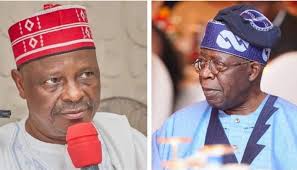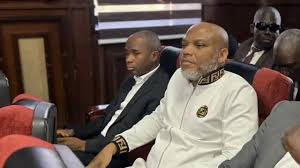
Women’s inclusion in politics important for sustainable development — EU
According to Samuela Isopi, the EU ambassador to Nigeria and ECOWAS, women's active involvement in politics and decision-making is crucial to Nigeria's attainment of equality, sustainable development, peace, and democracy.
The majority of women still confront numerous social, cultural, and economical obstacles, she pointed out, despite having the fundamental right to engage in political life.
Therefore, she reminded all parties involved—particularly the National Assembly—that Nigeria has a rare chance to join the ranks of progressive countries in advancing gender parity by enacting legislation that forbids discrimination based on gender as part of the current constitutional reform process.
In honour of International Women's Week, the European Union Support to Democratic Governance in Nigeria organised a two-day roundtable on women's participation in politics on Wednesday in Abuja. Ambassador Isopi was represented by Zissimos Vergos, the EU Deputy Head of Mission to Nigeria.
THE LOUNGE: AS A FAMILY TRADITION, WOULD YOU SLEEP WITH YOUR FATHER-IN-LAW PRIOR TO MARRIAGE?0:00 and 1:01
The topic of discussion of the event is "Women's underrepresentation: exploring the use of temporary special measures to elect women to parliaments."
"Over the years, conventions, protocols, and international agreements for gender mainstreaming have advanced strategies to increase women's participation in politics," the speaker stated. They haven't, however, yet shown to be successful in bringing about gender balance in the highest governmental positions.
Thus, obstacles that frequently make it difficult for women to access, exercise, and take positions of leadership persist, and women continue to be underrepresented in government.
"Women's agitation for political engagement in Nigeria has been ongoing, and despite the very active activities of major stakeholders and women's groups, their representation continues to steadily shrink. Out of the 469 seats in the Senate and House of Representatives combined, women make up 7.4% of the assembly in the 10th National Assembly, for instance.
She emphasised the compelling evidence showing an increase in policies that prioritises quality of life and takes into account the needs of marginalised groups, women, and families as more women are elected to public office.
"Women are more likely to work across party lines, prioritise health, education, and other important development indicators, be extremely responsive to constituent concerns, help secure lasting peace, and encourage citizen confidence in democracy through their own participation."
The aforementioned highlights the significant contributions women make when given equal opportunity to males, even though women's political leadership may not be the only solution to sustainable development. Thus, she continued, "we must work towards a society in which every woman feels not just secure enough to live but also empowered enough to thrive.
Benjamin Kalu, the Deputy Speaker of the House of Representatives, noted in his remarks that women are extremely valuable to the nation-building process because they are more in-depth, objective, unselfish, and have a larger sense of purpose.
"What the best-performing African nations in terms of female participation have in common is the implementation of female electoral quotas—a system absent from the lowest-ranking countries,” he stated. Nigeria, regrettably, is one of them. With only 4% of women in the House of Representatives and 3.6% in the Senate, Nigeria comes in last place. It is depressing.
The stack difference depicted by these numbers emphasises the critical need for preventative and corrective actions to address the gender imbalance in political representation.”
In her remarks, the Chairman, Senate Committee on Women Affairs, Senator Ireti Kingibe, said, “As of the 9th Assembly, we ranked 182 out of 186 countries in the world in terms of women in governance and politics. Nigeria faces significant gaps in women participation across all arms and levels of governance, reflecting a pressing need for increased gender inclusivity.
“Recent data reveals that women remain underrepresented in political spheres, with only 3.411 percent of parliamentary seats held by women. 4 out of 109 Senators, and 14 out of 360 members of the House of Representatives. Part of the problem that I see is that first, the women are not usually on the ballots, let alone to get voted for. Therefore, one of the first places to start would be the political parties.
“Even when the women get elected, even within the Chambers and the House, there is a lot of discrimination and lack of inclusion. It is not just about getting women elected but is also about changing the psyche of the average man for him to understand that women are important in governance and decision-making, just as he thinks his mother and wife are important.”
The Chairman, House Committee on Women in Parliament, Fatima Talba, added, “There is an urgent need to address the imbalance that we are seeing today in governance. There is a need to address women’s inclusion in politics and build bridges to empower women in politics.
“While there are over 150 committees in the National Assembly, there are committees with no women in it. How can the interest of women be protected? Women make up about 65 percent of the population, yet when it comes to decision-making, we are excluded.”
The Executive Director, Policy, and Legal Advocacy Centre, Clement Nwankwo, decried the unfair social, cultural, and political hurdles women have to scale to be able to hold political offices.
“Recent elections in Nigeria in 2023, completely underscores the challenge we have in women representation, especially when you have a situation where out of 109 Senators, only 4 are women. Also, in the House of Representatives where you have 360 representatives, and only 14 are women. This tells you the crisis of inclusion that Nigeria is faced with.
“Women continue to face severe challenges, even contesting elections in the primaries. After scaling past the primaries, they then have to face the bigger conversations around contesting in the election itself. This is an issue that goes to the root of our democracy and the structure of governance in the country,” he said.





